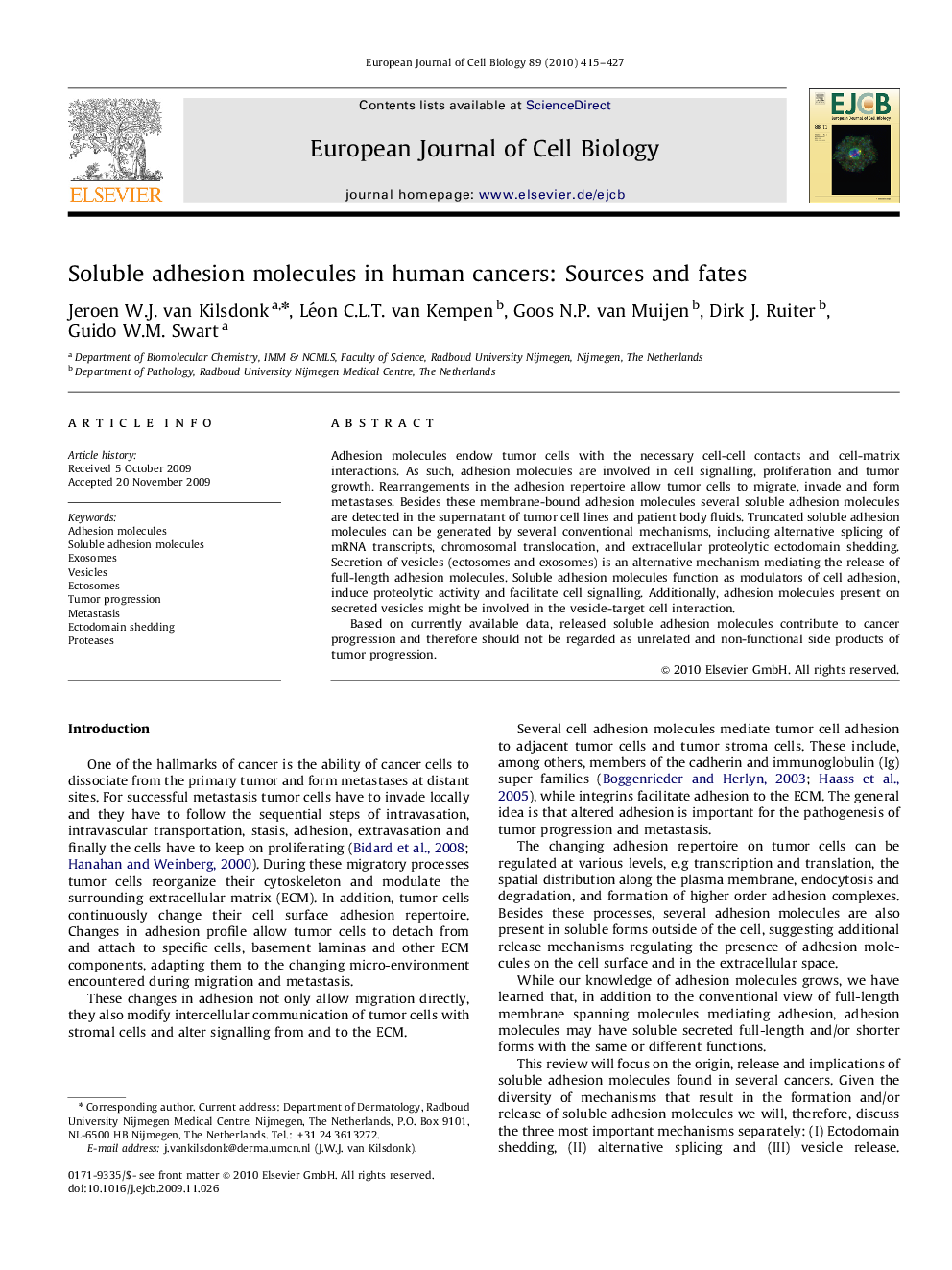| Article ID | Journal | Published Year | Pages | File Type |
|---|---|---|---|---|
| 2178785 | European Journal of Cell Biology | 2010 | 13 Pages |
Adhesion molecules endow tumor cells with the necessary cell-cell contacts and cell-matrix interactions. As such, adhesion molecules are involved in cell signalling, proliferation and tumor growth. Rearrangements in the adhesion repertoire allow tumor cells to migrate, invade and form metastases. Besides these membrane-bound adhesion molecules several soluble adhesion molecules are detected in the supernatant of tumor cell lines and patient body fluids. Truncated soluble adhesion molecules can be generated by several conventional mechanisms, including alternative splicing of mRNA transcripts, chromosomal translocation, and extracellular proteolytic ectodomain shedding. Secretion of vesicles (ectosomes and exosomes) is an alternative mechanism mediating the release of full-length adhesion molecules. Soluble adhesion molecules function as modulators of cell adhesion, induce proteolytic activity and facilitate cell signalling. Additionally, adhesion molecules present on secreted vesicles might be involved in the vesicle-target cell interaction.Based on currently available data, released soluble adhesion molecules contribute to cancer progression and therefore should not be regarded as unrelated and non-functional side products of tumor progression.
